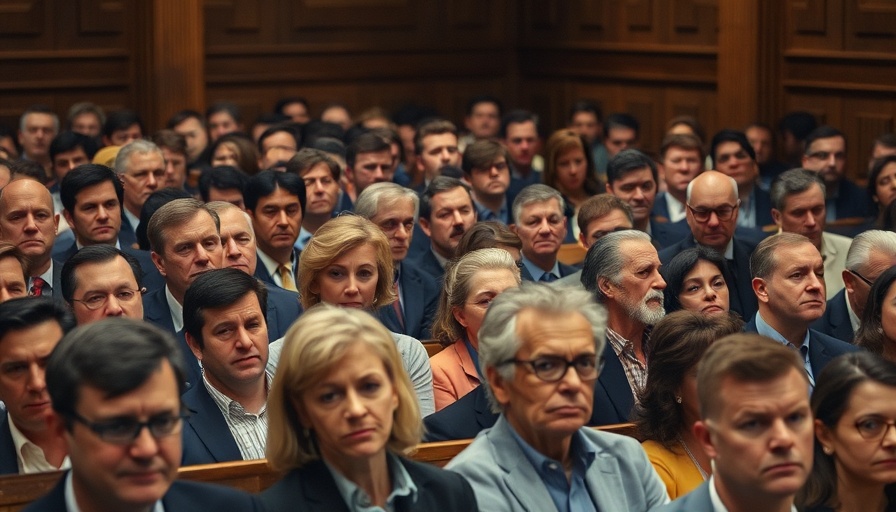
Understanding the Implications of Closed Primaries in Texas
Recently, Texas Attorney General Ken Paxton took a bold position supporting the Republican Party of Texas in a significant legal battle that could reshape the state's primary elections. This development followed the Republican Party's lawsuit against the state law that allows open primaries, which means any registered voter, regardless of their political affiliation, can vote in either party's primary elections.
Paxton publicly condemned the existing open primary system, asserting that it "violates the constitutional right to free association." His comments reflect a growing sentiment among some Texas conservatives who argue that the current system allows too much crossover voting, which they believe undermines the selection of true Republican candidates.
The Motivation Behind Closing Primaries
At the heart of this push is the belief among grassroots Republicans that only registered party members should be able to vote in their primaries. This sentiment has been intensifying, particularly after a string of close races where candidates from moderate factions within the party were accused of benefitting from votes cast by non-Republicans. For instance, two incumbent House representatives—Dade Phelan and Gary VanDeaver—won their primary races by narrow margins, which fueled accusations that their victories were influenced by crossover voting from Democrats and independents.
Paxton’s support for closed primaries represents not just a legal maneuver but a strategic pivot that aligns with the desires of the Republican base to solidify conservative representation in the state. Such a shift could potentially limit the influence of non-party members and moderate voters on primary outcomes.
Legal Context: The Lawsuit Against the State
The lawsuit initiated by the GOP asserts that the open primary system is unconstitutional and infringes on their rights to self-govern. In the motion filed with the U.S. District Court, Paxton and the Texas GOP argue that this system skews candidate selection and undermines the core principles of political affiliation and representation.
Interestingly, Paxton's stance is noteworthy because it marks a significant departure from the traditional role of the Attorney General in Texas, who is typically expected to defend state laws in court. Instead, he is actively working with the GOP to dismantle a framework of voter engagement that has defined Texas' political landscape for several decades.
Reactions and Potential Political Consequences
The response from other political actors has been mixed. Texas Secretary of State Jane Nelson was reportedly blindsided by Paxton's move, having only received a brief notification before the announcement. This discord hints at a rift within Texas' political ranks, especially since Nelson's office had initially prepared to defend the open primary system.
Furthermore, there are implications for the upcoming primary elections. With primaries set for March 2026, the Texas GOP is aiming for a swift resolution to their lawsuit. If successful, Texas would join the ranks of 14 other states that have already imposed restrictions on primary participation based on party affiliation. This movement could redefine voter participation in a state where the primary usually determines the final outcome in heavily partisan districts.
Looking Ahead: National Trends and Local Impact
This legal battle is reflective of a larger trend within American politics, where many parties are increasingly prioritizing strict membership and loyalty among their voters. Across various states, there’s an ongoing conversation about electoral integrity and who truly gets to participate in the democratic process.
As this lawsuit unfolds, it will be crucial for Texas voters and political observers to watch not only for immediate outcomes but also for how this may influence party dynamics and voter turnout in future elections. The ramifications of closing primaries could echo beyond party lines, shaping the landscape of Texas politics for years to come.
Engagement in the electoral process is crucial, and the outcomes of such battles can affect everything from local governance to national policy. Understanding these nuances is key to being an informed citizen.
As the political climate in Texas continues to evolve, staying updated on these developments is imperative. If you want to be on the cutting edge of local and national political news, consider following reliable sources and engaging in discussion about our democracy.
 Add Element
Add Element  Add Row
Add Row 



Write A Comment